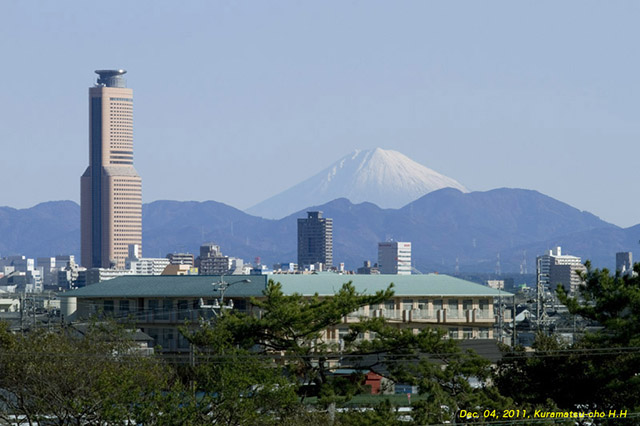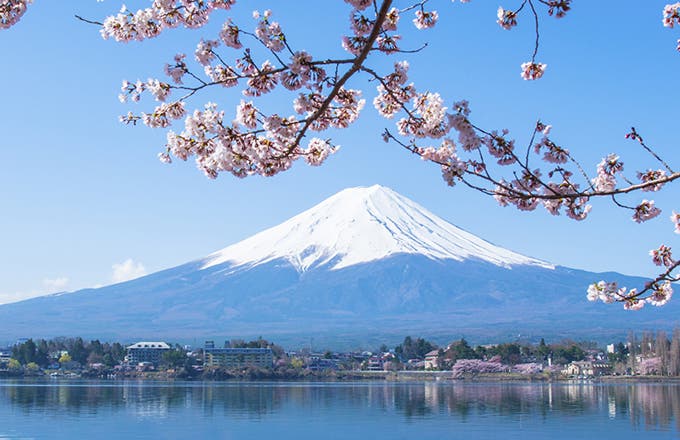 |
| The Act Tower in Hamamatsu and Mt. Fuji in Shizuoka photo credit: http://mohsho.image.coocan.jp/ |
Here's a recent email I got from someone who's coming to work in Japan:
Hello Faye!
I'll be coming to Japan this April. I've been hired by Interac and I will be assigned in Hamamatsu. I was glad to find your blog. It was really helpful.
I just like to know what other things should I know about Hamamatsu? I haven't heard of this city before so any information would really help.
Thanks!
xxxxxxx
I'll post my response to her email just in case other people are curious about Hamamatsu City. It's not as popular as Tokyo and Osaka so I understand the slight apprehension.
I could list a lot of things about Hamamatsu but I think here's the top 3 things you should now:
1. Hamamatsu is a windy city.
Being windy is the first thing that comes to mind when I think of Hamamatsu. Because of the wind, winters feel a lot more colder than the actual temperature. There are also days when the wind feels and sounds too much. On my first year in Hamamatsu, I had trouble sleeping on windy nights. The wind literally howls. I was also afraid that my rooftop would be stripped by the wind. Eventually, I learned to sleep in the midst of the disturbing winds.
On some windy days, cycling and walking would be a challenge. I was almost afraid that the wind can carry me. Just be prepared for the winds is what I'm saying.
2. Hamamatsu has a considerable population of Brazilians and Asians.
When you arrive in Hamamatsu, you'd notice immediately the Brazilian and Asian population. They're always around the station so it's easy to see them. As of 2015, there are more than 25,000 foreigners in Hamamatsu. Half of them are Brazilians. More than a quarter are Koreans, Filipinos, Vietnamese, Indonesians and Peruvians. There are many factories in Hamamatsu that employ foreigners. Hence, the foreign population. As for the presence of the Brazilians, they're mostly of nikkei descent. This means they were children or grandchildren of Japanese people who intermarried in Brazil.
Because of the foreign population, Japanese residents are used to seeing gaijins. Foreigners are not as rare as when I stayed in Iwate, Kochi or Okayama. For a foreigner, it's actually comforting to know that there are other foreigners in the area.
3. Hamamatsu is in a good, accessible location.
Hamamatsu is bordered by the Pacific Ocean in the south and the Akiha mountains in the north. It is blessed with nature. For someone who loves the outdoors like me, it's a great place to live. It is also a great starting point when travelling domestically. It's halfway through the big cities of Tokyo and Osaka. It's near Nagano for skiing and Izu for swimming. It's also accessible from Nagoya Airport and there are three bullet train lines that pass by Hamamatsu. If you're planning to travel around Japan, Hamamatsu is a great place to be in.
Other things to note that may or may not be helpful:
- Hamamatsu is known for the gyoza, unagi, tangerine and green tea.
- It's also a musical city. Concerts happen all-year round.
- A number of companies are headquartered in Hamamatsu like Roland, Photonics, Yamaha and Suzuki, Because of this, there are plenty of company English-teaching jobs
- It has a direct bus service going to Nagoya Airport.
- There's a big festival that happens during the Golden Week. It's worth participating in.
If ever you've been assigned in this city, don't be scared, It's a safe and a well-populated city. It may not be as exciting as the big cities but it's not inaka. You'll enjoy it here. I hope.

